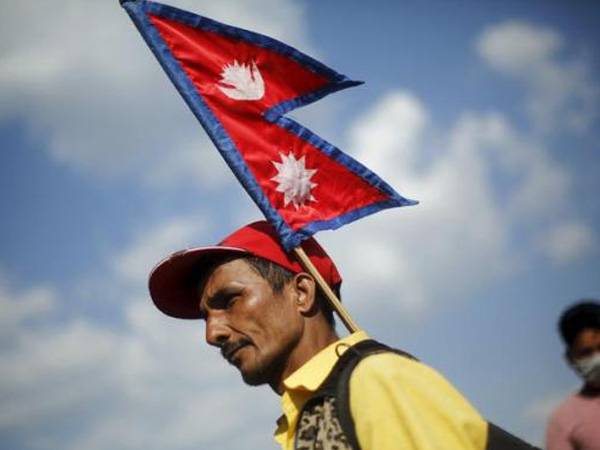According to observers, there will be a competition between the so-called ‘democratic-left alliance’ led by the Nepali Congress and the so-called ‘regressive alliance’ led by KP Oli’s CPN-UML in the upcoming polls, a report by Santosh Ghimire
Election fever has gripped Nepal. With just three days left for federal parliament and provincial assembly elections, campaigning is peaking, with candidates wooing voters across the country.
This is the second time that Nepal is holding such elections after a new republican constitution in 2015 was adopted. Similar polls were held for the first time in 2017.
According to the Election Commission of Nepal, altogether 2,412 candidates – 2,187 men and just 225 women – are vying for 165 of the 275 seats in the House of Representatives, the lower house, under the first-past-the-post (FPTP) electoral system. The remaining 110 lawmakers will be elected through proportional representation (PR) system.
This election has been described as a battle between two sides because all major parties have coalesced around two broad alliances, one led by the chief ruling party Nepali Congress and the other led by the main opposition Communist Part of Nepal Unified Marxist Leninist (CPN-UML).
While the Nepali Congress is contesting just 84 seats out of 165 constituencies under the FPTP category, the CPN-UML is contesting 135 seats, and the Prachanda-led CPN Maoist Centre has submitted nominations in only 47 seats.
This is the first time the Nepali Congress, the grand old party, is contesting only 84 out of 165 constituencies under the FPTP category.
According to observers, there will be a competition between the so-called ‘democratic-left alliance’ led by the Nepali Congress and the so-called ‘regressive alliance’ led by KP Oli’s CPN-UML in the upcoming polls.
The ‘democratic-left electoral alliance’ includes Prachanda’s CPN (Maoist Center), CPN (Unified Socialist) and Loktantantri Samajbadi Party (LSP) and Rastriya Janamorcha, who are also partners in the present ruling coalition.
The alliance led by Oli’s CPN-UML has Upendra Yadav-led Janata Samajbadi Party (JSP), and pro-monarchy Rashtriya Prajatantra Party (RPP) as members. The strange alliance of the hard-Left and the royalists is giving the opposition its “regressive” label.
Unsurprisingly, the ruling coalition led by Nepali Congress is projecting the Oli-led alliance as a regressive forces gang. Oli dissolved parliament twice while serving as the country’s prime minister from 2018 February to 2021 May.
Addressing an election rally in Nepal’s Midwestern Surkhet district on Tuesday, Prime Minister Sher Bahadur Deuba said that the electoral alliance of five parties are set to contest polls with those forces (CPN-UML) who tried to push back the country towards regression by dissolving parliament at least twice.
“The upcoming election will leave those forces behind who tried to jeopardize the country’s constitution by dissolving parliament at least twice in the past five years,” Deuba said.
On the other hand, CPN-UML’s Oli has hit back by repeatedly calling the electoral alliance of five ruling parties unnatural. In his election rally speeches, Oli describes his premiership as a golden period in the country’s history, citing focused economic development.

“Dissolution of parliament was the need of hour. I would not have dissolved parliament had I given a chance to continue to work in an unimpeded manner. Those who are now in power (Deuba and Prachanda) conspicuously stopped me from doing something good in the interests of people and the country,” Oli, the former prime minister, said at an election rally, while defending his acts of dismissing parliament in late 2020 and early 2021.
“These strange bedfellows (ruling parties) are simply pointing fingers on me because they have done nothing good to the country after grabbing power through a mandamus of the Supreme Court,” Oli added. He also said that his party did a lot in safeguarding the country’s constitution and sovereignty despite obstacles during his premiership.
As two major rival alliances are engaged in blame games ahead of crucial elections, political observers also agree that there will be a battle between the pro-republican and regressive forces.
“In their election manifestos, democratic-left parties have asserted that they can only protect the federal republican parliamentary system, if they are elected. They are projecting themselves as the only savior of the republican system because Oli vehemently tried to push the country back towards regression by dissolving parliament twice. Hence, this election can be termed as a battle between the pro-republican and regressive forces,” Guna Raj Luitel, editor-in-chief of Kathmandu-based Nagarik daily newspaper, told India Narrative on Wednesday.
(The content is being carried under an arrangement with indianarrative.com)














